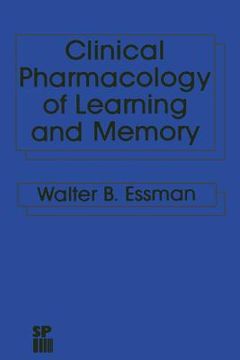Synopsis "Clinical Pharmacology of Learning and Memory (in English)"
The search for drugs to alter learning and memory processes in animals and man has its roots in mythology as well as the history of medicine. The use of plant alkaloids to improve memory was a recommendation of Benjamin Rush in his "Diseases of the Mind" (1812, P. 284), and the mysterious contents of lethe, a liquid capable of causing the erasure of earthly memories is found in Egyptian and Greek mythology, as well as described by Dante, remains a still-sought amnesic molecule. The facilitation of learning or improvement of memory has been claimed for several plant-derived substances including coca, chat, caffeine, and nicotine. Hypotheses concerning substances found in the brain and their presumed significance for learning or memory led to the development and use of agents that contained such substances. For example, as observed by William James (1892, P. 132), the emphasis, in Germany during the 1860's, upon phosphorus in the brain for cognitive functions gave rise to the suggestion that foods vii viii CLINICAL PHARMACOLOGY OF LEARNING AND MEMORY high in phosphorus content, such as fish, were good for brain function. Phosphorus-containing preparations were advocated for use in cases of poor memory, exhaustion, etc., and though sometimes useful, probably were effective due to a non-specific stimulant effect. Whether the positive cognitive efficacy of non-specific CNS stimulants such as phosphorus, rosemary, lavender, cubeb berries, etc. were really very different from those investigated in animal experiments (Lashley, 1917) or those documented within recent decades remains to be explored.

